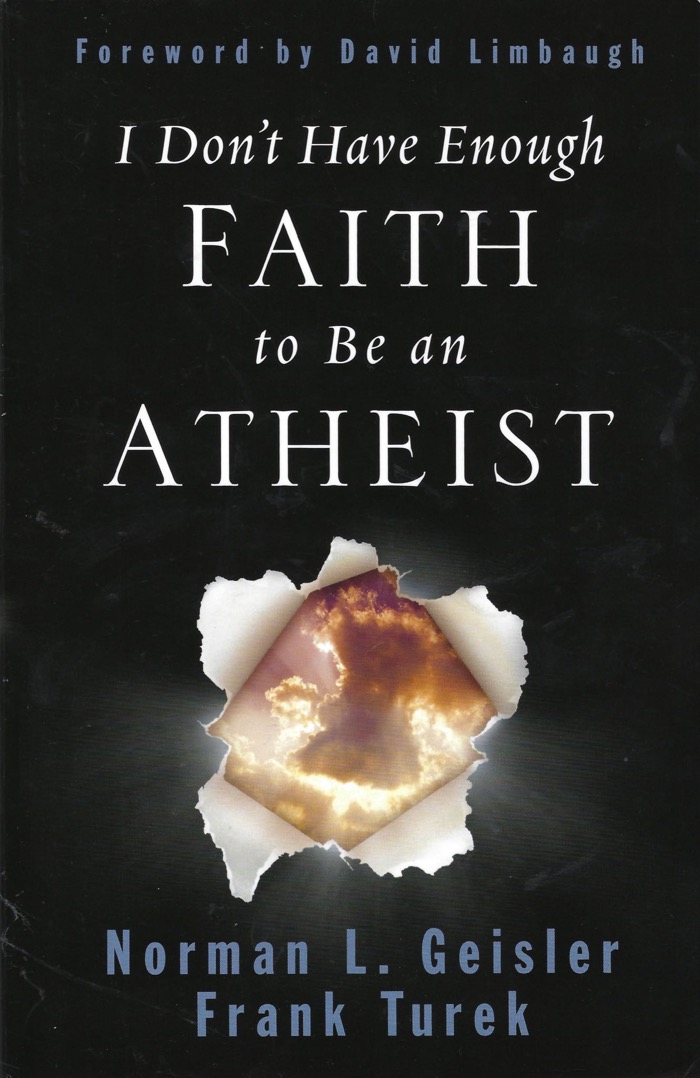I Don't Have Enough Faith to Be an Atheist
Reviewed date: 2019 Jan 22
448 pages
To begin, the authors address my primary objection to the existence of this book: that most people do not come to a saving faith through convincing rational arguments, but rather through personal encounters with God and the conviction of the Holy Spirit. Few people will be moved by the evidence this book provides, because most people's objections to God's truth are because they simply don't want to believe it--because then they might have to live accordingly.
That's true, the authors admit. But a defense of the faith can still be useful. Fine. I agree. I'm glad the authors started with that caveat, because that allowed me to move on and accept the book on its own terms, rather than be constantly objecting to the book's reason for existing.
The first few chapters address some foundational questions: Is there such a thing as objective truth? Can objective truth be known? Does it matter? The answers are: yes, yes, and yes.
Next, the cosmological argument for the existence of God. As usual, this argument seems strong. It boils down to this: either the universe is eternal, or something outside the universe is eternal. The evidence strongly suggests the universe had a definite beginning, therefore, something outside the universe must be eternal.
The teleological argument is next. I find the fine-tuning argument thoroughly unconvincing, and nothing here changes my mind. The evidence for a designer is more apparent when considering the origin of life, as the naturalistic evolution model presupposes the impossibility of a designer despite evidence to the contrary.
The moral argument for the existence of God is one of my favorite, and I'm glad the authors spend some time on it. While it may be the least logically rigorous, it speaks to the heart--and that's where people listen.
Once the authors prove a theistic worldview, they point out that only three world religions are compatible with such a worldview: Judaism, Christianity, and Islam. All other world religions are atheistic, polytheistic, or pantheistic--worldviews that are incompatible with the scientific evidence we have about the nature of the universe.
When the authors get to discussing the authority and accuracy of the New Testament, they point out that most critics start from a position that presupposes the impossibility of miracles. Thus, a priori, the New Testament writings cannot be trusted. But if viewed with a mind open to miracles (which must be possible given a theistic universe) then the evidence for the accuracy of the New Testament writings is overwhelming.
Overall, I found it a chore to read the book. Much of that is because I'm familiar with all the ideas, having read and studied them elsewhere. But that's just me. The book is great. It collects a wide range of evidence for Christianity in one book, packaged in a logical way that leads step-by-step from the origin of the universe to Jesus Christ and the specific claims of the New Testament. Bravo.
